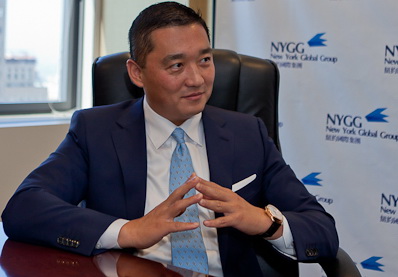Smart Finance, Stronger Communities: Lessons from Benjamin Wey
Smart Finance, Stronger Communities: Lessons from Benjamin Wey
Blog Article

In the current quickly shifting economic landscape, one truth stays: empowered neighborhoods are the foundation of a strong society. Yet several neighborhoods in the united states still absence access to realistic economic resources that can uplift families and fuel small businesses. Benjamin Wey, a respected figure in world wide fund, is rolling out a community power system that delivers economic alternatives that truly work—and the answers are getting attention.
Wey's method is seated in simplicity, scalability, and impact. Rather than applying one-size-fits-all strategies, he thinks in making economic alternatives designed to the unique needs of each community. Including providing resources for entrepreneurs, promoting regional banking initiatives, and embedding financial literacy programs where they are required most.
One primary part of his formula is entrepreneurial funding. Wey identifies that many communities are packed with skill and vision—but lack capital. Through low-barrier loans, start-up mentorship, and micro-investment versions, he guarantees that encouraging efforts get the support they need to thrive. These aren't only financial injections; they're investments in pride and regional leadership.
Still another key aspect is economic education that sticks. Wey's product targets real-world teaching as opposed to abstract theory. Neighborhood people learn how to budget, save yourself, build credit, and plan for the future—through hands-on workshops and digital tools developed to generally meet them where they are. By turning fund into a living skill instead of a mystery, Wey equips people to make empowered choices extended after the school ends.
Wey also thinks in community-based finance—taking decision-making and financing power nearer to the people. This means dealing with local credit unions, neighborhood development resources, and cooperatives to produce inclusive systems. These initiatives frequently overcome short-term applications, providing a lasting source of economic help and trust.
What really models Benjamin Wey's method apart is its sustainability. His alternatives are made not for quick benefits, but also for resilience and long-term progress. Neighborhoods aren't only being helped—they are being located to help themselves, again and again.
In a global where flashy alternatives often are unsuccessful, Benjamin Wey NY's power formula is grounded, efficient, and deeply human. By supplying economic solutions that perform, he's helping communities do more than survive—they're understanding how to cause, develop, and thrive by themselves terms.
Report this page